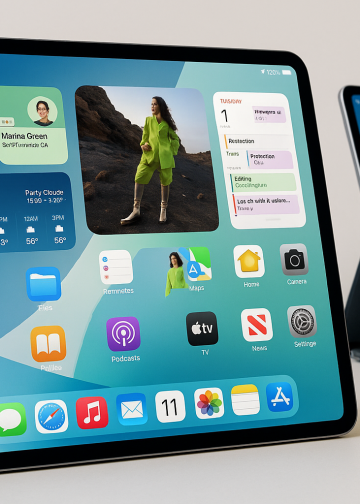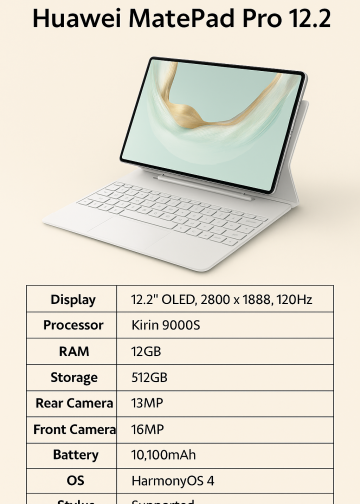Introduction: Why Sustainability is the New Standard for American Businesses
In recent years, sustainable business USA has evolved from a buzzword into a core expectation—both from consumers and within the business community itself. The American marketplace is witnessing a seismic shift, as more companies embrace eco-friendly strategies, commit to corporate responsibility, and integrate green business practices into every facet of their operations.
What’s behind this transformation? It’s a combination of changing consumer values, stricter regulations, innovative technologies, and the realization that going green is no longer just the “right thing to do”—it’s smart business. In this guide, we’ll explore how American companies are leading the way in sustainability, why it matters, and how your organization can adopt the latest American business trends for a greener, more profitable future.
1. The Green Business Imperative: What’s Driving Change?
American consumers today are more informed and more selective than ever. They demand transparency and responsibility from the brands they support. In response:
- Major retailers are phasing out single-use plastics.
- Fast food giants are introducing plant-based menu items.
- Tech companies are investing in carbon-neutral data centers.
- Small businesses are sourcing locally and reducing packaging.
This isn’t just a trend—it’s a new marketplace reality.
2. Benefits of Embracing Sustainable Business Practices
Why are so many American companies going green? The benefits are clear:
a. Cost Savings
Reducing waste, optimizing energy use, and streamlining logistics can save substantial money over time.
b. Enhanced Brand Reputation
Eco-friendly companies attract loyal customers, top talent, and positive media attention.
c. Regulatory Compliance
Staying ahead of environmental regulations avoids fines and positions businesses as proactive leaders.
d. Access to New Markets
Sustainability certifications open doors to contracts, partnerships, and investors who prioritize green business.
e. Innovation & Growth
The pursuit of sustainability often sparks new ideas, products, and processes that fuel business growth.
3. Core Green Business Practices in the USA
What does “going green” really mean for American companies? Here are the pillars of sustainable business USA:
a. Energy Efficiency
- Upgrading to LED lighting and smart thermostats
- Installing solar panels or buying renewable energy credits
- Conducting regular energy audits
b. Waste Reduction
- Recycling and composting programs in offices and stores
- Reusable or biodegradable packaging
- Digital documents and cloud storage to reduce paper
c. Sustainable Sourcing
- Choosing local suppliers to cut transport emissions
- Vetting suppliers for ethical and environmental standards
- Using recycled or organic materials
d. Water Conservation
- Low-flow fixtures in restrooms and kitchens
- Monitoring usage and fixing leaks promptly
- Implementing drought-resistant landscaping
e. Green Transportation
- Offering incentives for employees who bike, carpool, or use public transit
- Switching to hybrid or electric company vehicles
- Optimizing delivery routes for fuel savings
f. Social Responsibility
- Supporting community environmental projects
- Fair labor practices and safe working conditions
- Diversity, equity, and inclusion initiatives
4. Leading Examples: American Companies Setting the Bar
a. Patagonia
The outdoor apparel brand is famous for its “Don’t Buy This Jacket” campaign, encouraging consumers to buy less and repair more. Patagonia donates time, services, and at least 1% of sales to environmental causes.
b. Tesla
Tesla is transforming the auto industry with electric vehicles, solar panels, and battery storage solutions, pushing competitors to innovate greener technologies.
c. Ben & Jerry’s
This ice cream company sources Fairtrade ingredients, uses sustainable packaging, and is vocal about environmental justice.
d. Microsoft
Microsoft pledges to be carbon negative by 2030 and is investing in renewable energy, water positivity, and a circular supply chain.
e. Local Small Businesses
From farm-to-table restaurants to zero-waste boutiques, small enterprises across the USA are leading with creativity and purpose in green business practices.
5. Corporate Responsibility: More Than Just “Greenwashing”
Real sustainability is about more than a few recycled products or eco-friendly slogans. Corporate responsibility demands:
- Measurable goals and transparent reporting (ex: publishing annual sustainability reports)
- Long-term commitment (multi-year goals, ongoing investments)
- Engaging employees at all levels
- Listening and responding to stakeholder feedback
- Partnerships with NGOs, government, and communities
Customers can spot “greenwashing” (superficial or misleading claims) from a mile away. Authenticity is key.
6. How to Make Your Business More Sustainable
Ready to join the ranks of eco-friendly companies? Here’s a step-by-step approach:
Step 1: Assess Your Impact
- Conduct a sustainability audit—energy, waste, water, sourcing, transportation.
- Identify your biggest environmental “pain points.”
Step 2: Set SMART Sustainability Goals
- Specific, Measurable, Achievable, Relevant, Time-bound.
- Example: “Reduce office energy use by 30% within two years.”
Step 3: Engage Your Team
- Involve employees in idea generation and implementation.
- Offer incentives for green behavior (public transport, reusable cups, remote work).
Step 4: Start Small, Think Big
- Begin with simple changes: switch to LED bulbs, install recycling bins, source local snacks for the break room.
- Expand to bigger projects: solar energy, green roofs, supply chain overhauls.
Step 5: Measure and Report Progress
- Track key metrics: energy use, waste diverted, emissions reduced.
- Share updates with your team, customers, and stakeholders.
Step 6: Celebrate and Communicate Success
- Highlight achievements in marketing, press releases, and on social media.
- Use certifications and eco-labels to signal your commitment.
7. Overcoming Common Challenges in Sustainable Business USA
Even well-intentioned businesses can struggle with:
a. Upfront Costs
Green upgrades often require investment. Consider grants, tax incentives, or phased implementation to manage costs.
b. Employee Buy-In
Change can be tough! Involve your team early and make sustainability part of your culture.
c. Finding Reliable Suppliers
Do your homework, ask for certifications, and build relationships with vendors who share your values.
d. Measuring Impact
Use software and outside consultants if needed—track only what matters most to your business.
e. Avoiding Green Fatigue
Sustainability is a journey. Celebrate small wins and keep innovating to maintain momentum.
8. Sustainable Business Trends Shaping the Future in America
Looking ahead, several trends are reshaping the American marketplace:
a. Circular Economy
Businesses are designing products for reuse, repair, and recycling to minimize waste and extend product lifecycles.
b. Climate Disclosure Regulations
Expect more mandatory reporting on carbon emissions and climate risks at the state and federal level.
c. Eco-Innovation
From lab-grown meat to biodegradable electronics, breakthrough technologies are unlocking new sustainable solutions.
d. Stakeholder Capitalism
Companies are judged not just by profits, but by their impact on people and the planet.
e. Green Financing
Investors increasingly favor companies with robust sustainability plans and ESG (environmental, social, governance) scores.
9. How Consumers Drive Sustainable Business
Never underestimate the power of American consumers. Social media amplifies demands for transparency, eco-friendly products, and social impact. Businesses that listen and respond—offering plant-based foods, zero-waste packaging, or climate-friendly shipping—build loyalty and set themselves apart from the competition.
10. Resources for Going Green
- U.S. Small Business Administration: Sustainable Business Practices
- Environmental Protection Agency: Green Business
- Green Business Certification Inc.
- The Climate Registry
Conclusion: Building a Greener, More Profitable American Marketplace
Sustainable business USA is no longer a niche. It’s the new normal—and it’s reshaping how American companies operate, grow, and compete. By embracing green business practices and committing to true corporate responsibility, your business can protect the planet, delight customers, and secure long-term success.
Ready to lead the way? Start your journey toward sustainability today. Your business—and future generations—will thank you


















































